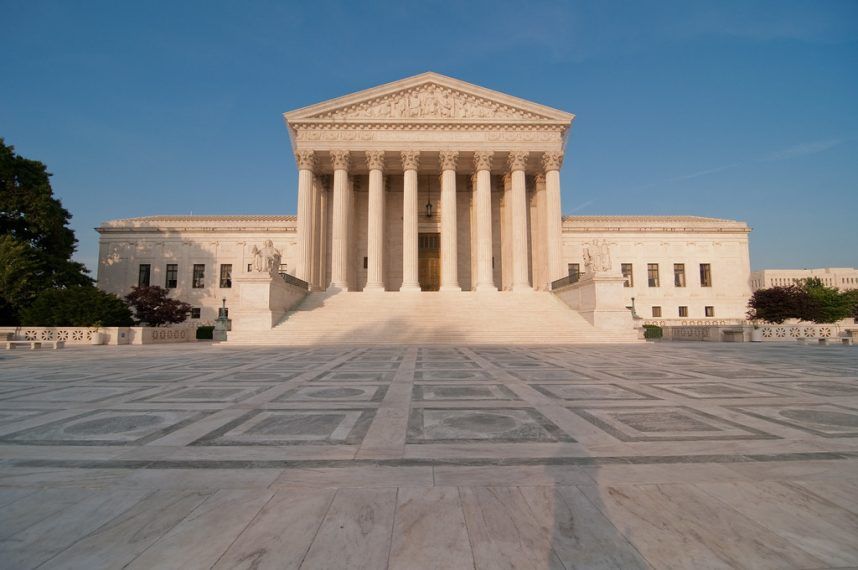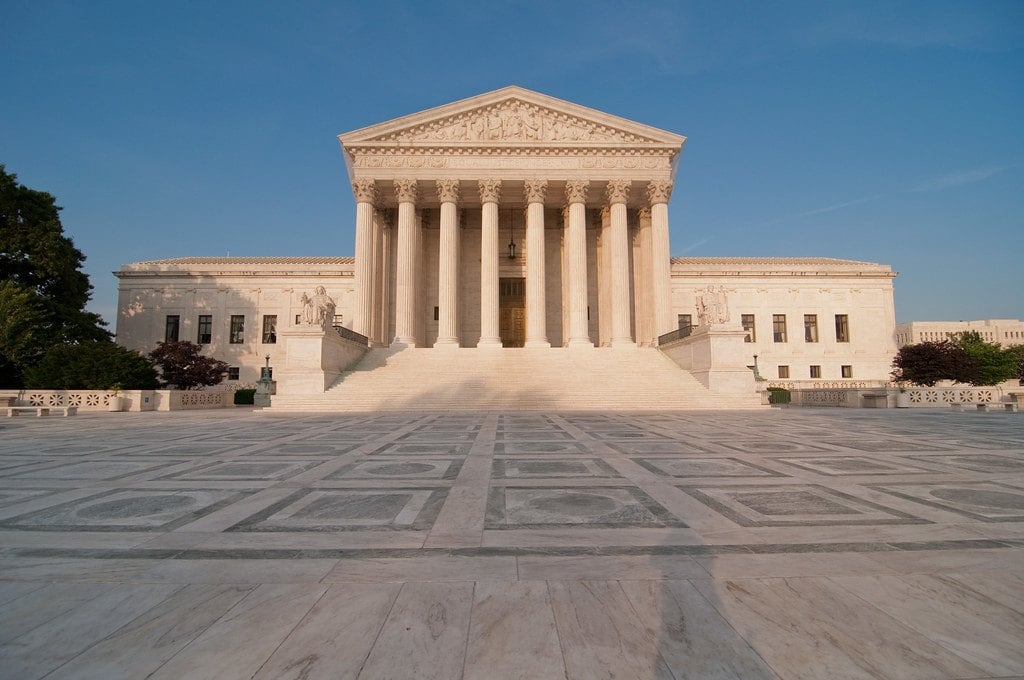Posted on: November 21, 2023, 10:49h.
Last updated on: November 21, 2023, 11:26h.
The companies attempting to undo the Seminole Tribe’s monopoly on sports betting in Florida are asking the U.S. Supreme Court to allow them to wait until next year for resolution of their federal case. Such a move would allow time for a state proceeding to conclude.

The request comes in a filing submitted Monday by West Flagler Associates and Bonita-Fort Myers Corp., the Florida pari-mutuel operators who are trying to overturn the tribe’s gaming compact. The companies say they need until February 9 to file a writ of certiorari asking the Supreme Court to overturn a decision from the U.S. Court of Appeals for the District of Columbia Circuit that upheld the tribal gaming compact.
West Flagler says the delay is necessary to give the Florida Supreme Court time to decide on a separate challenge the companies have filed. That seeks to invalidate Gov. Ron DeSantis’ (R) and the Florida legislature’s approval of the compact in 2021.
The gaming compact allows the Seminole Tribe to expand the games offered at its six casinos and to offer online sports betting through its Hard Rock Bets platform. West Flagler has argued that the compact violates the federal Indian Gaming Regulatory Act, as well as the Florida constitution. The deal would allow the tribe to offer gaming off its reservation. Defenders of the compact say it complies with the law because the mobile sportsbook is hosted on computer servers that are located on Seminole land.
“This fiction was adopted to deem the Compact to be solely dealing with gaming on Indian lands, and thereby to circumvent a Florida constitutional ban on the expansion of casino gaming absent a citizens’ referendum, except for casino gaming covered by a valid IGRA compact for gaming ‘on tribal lands,’” West Flagler’s lawyers wrote in the request for a time extension Tuesday.
Sportsbook Online With SCOTUS Stay Gone
In mid-October, Chief Justice John Roberts issued a stay preventing the compact from taking effect. But that hold was lifted two weeks later.
When they first requested the stay, West Flagler and Bonita-Fort Myers said they would file their full writ of certiorari by November 20. But that commitment was premised on the expectation that a stay would remain in place.
Since the stay was lifted, the Seminole Tribe has relaunched its Hard Rock Bets platform in Florida for some customers. In addition, the Florida Supreme Court has denied a request to expedite proceedings in its case. DeSantis must file a response by December 1 in the state case.
Now, opponents say that the ultimate outcome of the state proceedings will influence how they present their case to the high court.
West Flagler owns the Bonita Springs Poker Room in southwest Florida. It also, until recently, owned the Magic City Casino in Miami.
‘Absurd Trap’ Possible Without Delay
The federal court decisions have been relatively narrow in scope. They hold that the Interior Department, which oversees tribal gaming, only has the authority to approve activity that happens on tribal lands, and that is all the department did in this case.
Questions over whether the tribe’s operation of a mobile sportsbook is allowed under state law is a separate question. But the DC Circuit did say that the tribal compact “cannot provide independent legal authority for gaming activity that occurs outside of Indian lands, where that activity would otherwise violate state law,” according to West Flagler’s filing.
The companies also point to an observation from Supreme Court Justice Brett Kavanaugh that there are “serious equal protection issues” if “the Seminole Tribe—and only the Seminole Tribe—[can] conduct certain off-reservation gaming operations in Florida.”
The Florida Supreme Court’s resolution of the State Petition may be relevant to whether the reasoning of the Circuit Opinion is accepted, or whether instead the Applicants are caught in an absurd trap between two judicial systems saying inconsistent things about the nature of this Compact,” according to West Flagler’s latest filing.
If the Supreme Court doesn’t grant the companies’ request, they will have to file a cert petition by December 11, 90 days after their D.C. Circuit rehearing request was denied.




